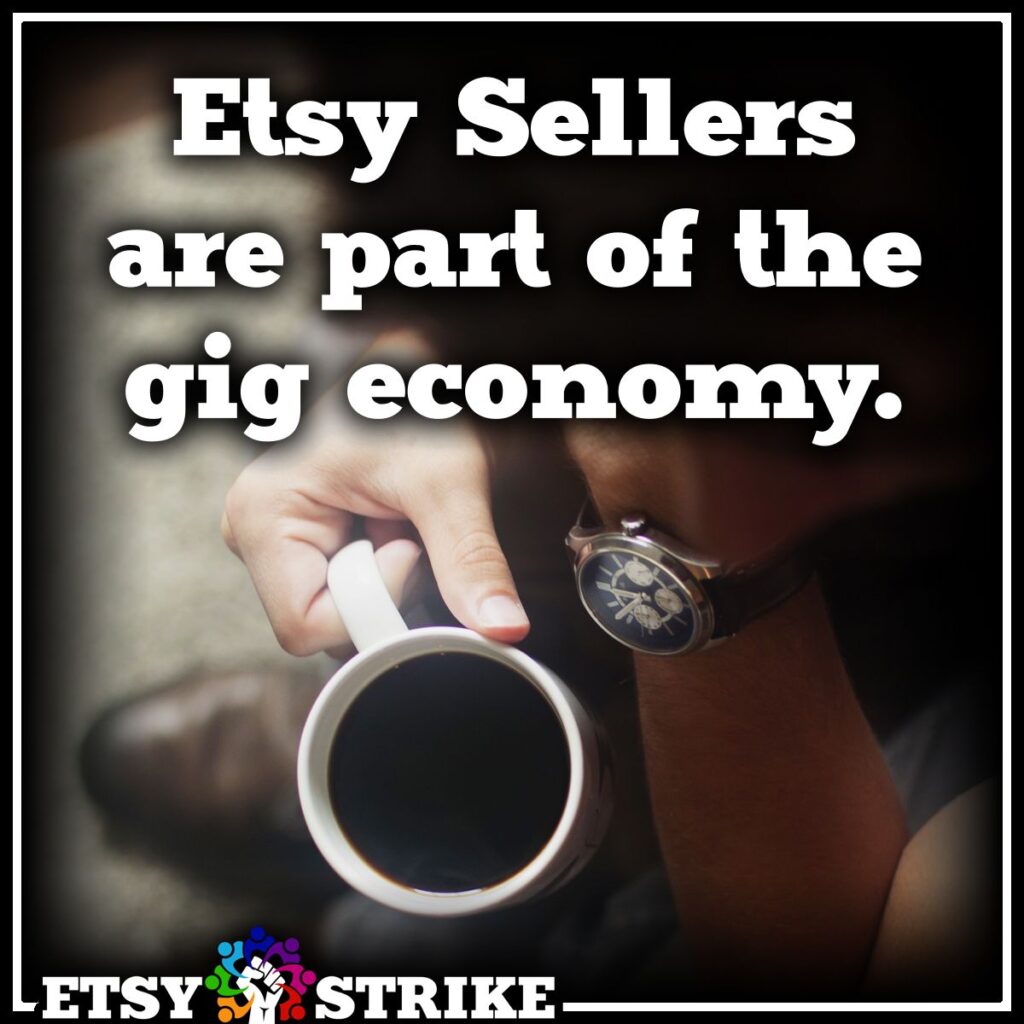My neighbor and I have next to nothing in common. She’s an Uber driver. I’m an internet-based business owner who sells my creations on Etsy. You might think that our livelihoods number among the things we do not share.
You would be wrong.
Personality, out-of-work interests, our overall lifestyles. These are the things that we don’t have in common. Our work lives are eerily similar. When she voices her frustrations with working in the gig economy, I completely get where she is coming from. I’m coming from the same place.
Precarity defines our lives. We sit in apartments, side by side, waiting for an app to notify us whether we will get paid each week. I’m dependent on an algorithm for my income. She is dependent on local happenstance.
We are always on call. For instance, if our apps were to ding mid-movie, there’s this pressure. For her it’s obvious. If she doesn’t take untimely drives then she misses out on the payment for them. For me it’s more of an unknown. It’s possible I could finish the movie and respond to the message afterwards, and have that lead to a sale. It’s also possible that the shopper could find another shop by then and no longer be interested. And finally, it’s possible that I pause the movie, make my family wait while I respond to the message, and the shopper still decides to go elsewhere.
We are powerless. In a regular job, your boss is a person. Who is hundreds to thousands of times more powerful than you. For those of us in the gig economy, our boss is a digital platform. Our boss is an overreaching all-powerful AI, and we are mere numbers in an automated system. If we are mistreated, we have no one we can complain to. Nowhere we can go.
There is one difference between myself and my neighbor. I get to cosplay an entrepreneur on social media. She doesn’t.
Don’t get me wrong – I enjoy pretending to be an entrepreneur on social media. But I know I’m a fake. Etsy knows I’m a fake.
Most small businesses are B2C – businesses who sell to consumers. Another type of business is B2B – businesses who sell to other businesses. For the most part, Etsy sellers are considered to be part of a third category – C2C. Consumers who sell to other consumers.
If you just barely breach the veil of public relations, you’ll see that they don’t even consider us real businesses. It shows. When they create programs like Star Seller that force unrealistic customer service expectations on us. When they make us pay for ads that used to be figured into the fees to use the platform, and have “success” at a level well below the federal poverty line be the criteria that prevents us from being able to opt out.
When they decide to more than double our basic fees to use the platform in less than four year’s time.
I also know that I’m writing about this topic from a position of privilege. You see, I’m married to a man who works in the regular economy. If I have a month where I fail to quickly adjust to some change in the algorithm or in Etsy’s policies, we don’t fail to pay our rent. It just means we have to tighten our belts a little – and let me tell you, I can do some damn tasty things with rice and dried beans.
Many of the people who have joined our movement don’t have this luxury. Etsy is their only income.
When Etsy keeps making these changes that hurt our businesses, it means we do the same amount of work for less pay – at least for a while, until we figure out how to adjust our strategy. Spend the time it takes to increase prices by an appropriate amount, so that our customers are the ones paying for Etsy’s desire to earn more profit from our labor.
All signs point to the gig economy being the future of human labor. To me, that’s a terrifying, dystopian future.
Unless we can unite so that the people have some power against these huge, unaccountable tech platforms.


Comments are closed, but trackbacks and pingbacks are open.